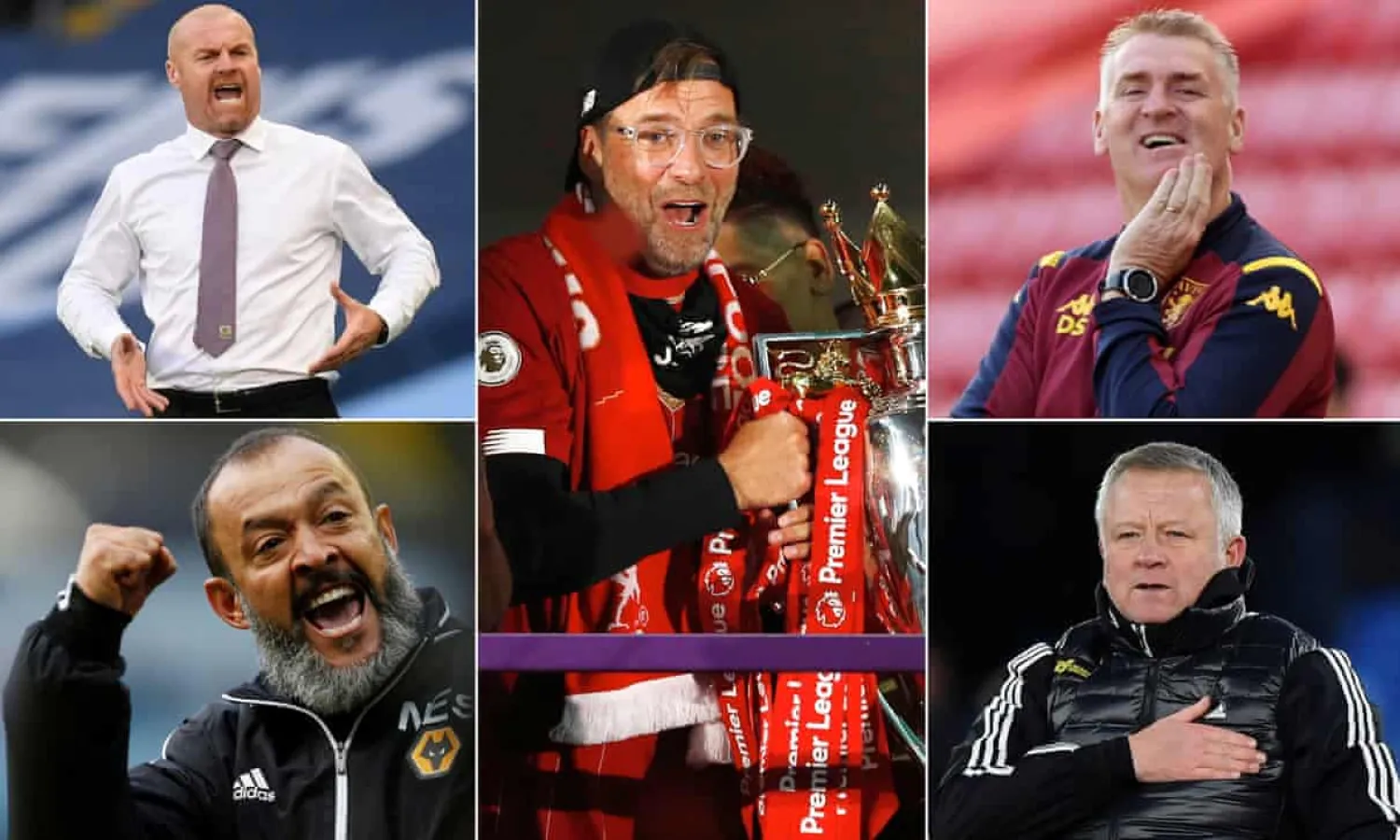As the latest Premier League campaign ends, "The Guardian" has nominated some manager of the season contenders.
Jürgen Klopp
Last season Liverpool missed out on the league title by 11.7mm, this season they won it by a country mile. As with his Champions League success, Jürgen Klopp ensured that painful disappointment translated into improvement. Liverpool played with consistency and authority that no one came close to matching. They played with panache but also with relentless control, even amid the pressure of ending their 30-year title quest. Klopp used to be accused of being too emotional and idealistic. That seems ridiculous now, yet he has never lost his charisma.
Chris Wilder
Most people said Sheffield United were certainties for relegation but they were safe long before the end of the season and did not switch off, going on to challenge for European qualification. This was achieved with cleverness and style, with players who had either never played at Premier League level, or been there already and made no mark. To top it off, the Blades were terrific to watch, an intelligent and innovative team in the true sense. It was not just their overlapping center-backs that amazed. Not only were they difficult to penetrate, there were matches in which they put three goals past Chelsea, Tottenham, and Manchester United. That is not normal for a newly-promoted side.
Nuno Espírito Santo
You know the way qualifying for the Europa League is supposed to be a curse in disguise for clubs with small squads? Well, Wolves don’t know what you’re on about. Nuno Espírito Santo’s team took it all in their stride, reaching the latter stages of the Europa League while surpassing last season’s points tally in the Premier League. And what a pleasing team they are to watch thanks notably to Adama Traoré, a player who is spectacularly fulfilling his potential thanks to Nuno’s coaching. Traoré joined players such as Romain Saïss and Leander Dendoncker in learning to excel in a variety of roles under Nuno, who has formed a special bond with his players and the Wolves fans.
Dean Smith
Teams who get promoted through the play-offs are expected to struggle, especially if they lose half their squad straight away. Dean Smith had to adapt to the top flight while blending in over a dozen new arrivals, promising talents recruited at an average price of around £9.5m each, which is small beer in the Premier League saloon. Then, halfway through the campaign, he had to cope with the loss of the spine of his team, with goalkeeper Tom Heaton and main striker Wesley suffering long-term injuries and John McGinn sidelined for several months. Smith showed his skills by successfully changing his approach and tightening up a defence that had been leaky, and he helped newcomers such as Douglas Luiz and Trezeguet to grow into very good Premier League players. Before the season ended it was clear that Villa would be wise to keep Smith irrespective of whether they stayed up or went down.
Sean Dyche
Some people are bored of Burnley. Sean Dyche might be one of them, in so far as he’d like to be given the financial latitude to expand his squad and embellish his style. In the meantime, he makes sure his team keeps beating others. Burnley won more matches than ever in the Premier League this season even though they lost one of their main strikers, Ashley Barnes, to injury halfway through. They won at Old Trafford and were the only away team to take a point at Anfield. They kept more clean sheets than everyone but Liverpool and Manchester City. Players such as James Tarkowski and Nick Pope have developed into England internationals and Dwight McNeil is one of the most exciting young talents in the league. Burnley may not be fashionable, but they are going to be a force in the top flight for at least as long as they have Dyche.
(The Guardian)









